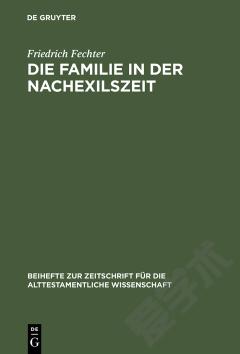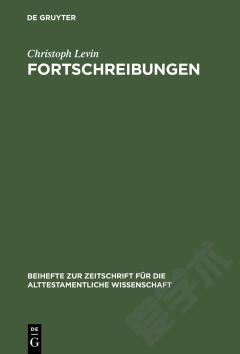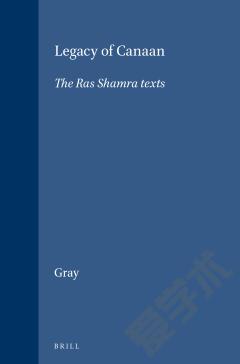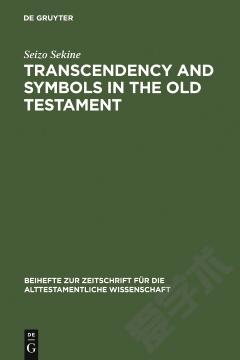Die Familie in der Nachexilszeit —— Untersuchungen zur Bedeutung der Verwandtschaft in ausgewählten Texten des Alten Testaments
----- 流亡后的家庭:旧约圣经选本中亲属关系的调查
(ProQuest Information and Learning: Foreign text omitted) Die Familie in der Nachexilszet: Untersuchungen zur Bedeutung der Verwandtschaft in ausgewahlten Texten des Alten Testaments, by Friedrich Fechter. BZAW 264. Berlin/New York: de Gruyter, 1998. Pp. x + 377. DM 192.00. The starting point of this Erlangen habilitation is the contemporary discussion about the value and significance of the family in modern society amidst the constant change of social values. The author wants to contribute to-this discussion by analyzing the growing significance of family and kinship structures within Israelite society in early postexilic time. After some preliminary remarks (e.g., on terminological issues) the author first gives a brief survey of the scholarly discussion on the topic of the family in the OT (pp. 12-31). The main part of his work contains a detailed historical-critical exegesis of four selected passages (Josh 7; Lev 18; Ruth; Mic 7:1-7), which he has chosen for practical and form-critical reasons (pp. 34-305). His method is characterized by frequent references to issues and the results of cross-cultural, ethno-sociological research; his own approach, however, focuses on a more traditional historico-critical methodology (esp. literary-criticism). The result of his investigation is that all texts examined date from the exilic or postexilic period and have to be interpreted first as historical and sociological witnesses to their own time. Accordingly, neither Josh 7 nor Lev 18 could help to reconstruct the social structure of early Israel as scholars have done recently. The passages treated rather bear witness to a deliberate reconstitution of Israelite society in terms of kinship structures in the early postexilic period, after the loss of the central political and religious institutions in Jerusalem. Indeed, this reconstitution refers to older traditions within Israelite society; according to Fechter, however, this is the first time kinship was deliberately taken into account as the basic sociological model of Israelite society. According to Josh 7 and 1 Sam 10:17-25, which in Fechter's judgment both belong to the exilic DtrH, Israelite society is divided into three levels that form a concentric structure: the (extended) family , the clan, and the tribe . Following the incest catalogue in Lev 18:7-16deg, the as the basic unit of society can be defined as an "extended family" consisting of four generations at most. The next level, the clan structure, has been replaced by the category of the rimm n4' in the early postexilic period. This compound noun the author understands as a proper plural with a collective meaning ("lineage"). Characteristic of the is its genealogical structure, which serves to prove an individual's descent on the one hand and to mark off an ethnic entity from its surrounding groups (cf. Josh 7:1, 18 DtrN) on the other. Within Lev 18 the author distinguishes three redactional layers. An originally independent series of different sexual proscriptions (w. 19-23deg) was secondarily framed and incorporated into the Sinaitic pericope of the Priestly source ("Redaktion I"; the author joins K. Elliger and others in disputing the existence of an independent holiness code). Later on in the postexilic period, a second redaction took place ("Redaktion II"), reworking the older composition and inserting an originally independent list of incest regulations (w. 7-16deg). In a final revision of the text w. 17-18 were inserted. Behind this recensional development of the text the author assumes a sociological shift leading toward an increasing esteem of motherhood (and marriage) in postexilic Judaism. In another respect the book of Ruth, which the author dates to the early postexilic period, shares this high esteem of family and kinship. The family or kinship group helps to fulfill the individual's need for identity in a time of social and economic distress. â¦
{{comment.content}}








 京公网安备 11010802027623号
京公网安备 11010802027623号